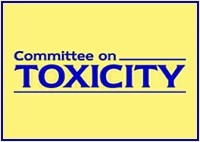EFSA defends aspartame work, denies dossier loss

MEPs Corinne Lepage and Antonyia Parvanova, from the Alliance of Liberals and Democrats welcomed the news that a full evaluation of aspartame’s safety profile would be completed before July 2012.
Mystery dossier
But calling for further public information on uncertainties concerning the health implications of aspartame intake to be made available – particularly for pregnant women – they said in a joint statement: “We should denounce how careless the EFSA and the Commission have been until handling this case until now.
“Recent exchanges of letter between NGOs [non-governmental organisations] and the EFSA seem to indicate that the EFSA never took the time to look at the original evaluation, and that data has even been lost.”
The specific exchange relates to a request from French NGO Réseau Environnement Santé (RES) to EFSA, asking the authority to communicate toxicology studies upon which the Admissible Daily Intake (ADI) of aspartame in Europe is based.
Hugh Kenigswald replied on May 24 that EFSA did not have the relevant dossier, and contacts with his colleagues at the European Commission suggested that they no longer possessed it.
In a public hearing on aspartame in the European Parliament on March 16, the MEPs asked EFSA (RES has also) to release toxicology data on the Admissible Daily Intake (ADI), and to recalculate levels based on manufacturer-independent studies of aspartame.
Presented with the data loss claim, an EFSA spokeswoman said: “EFSA has not lost any data...[and] is undertaking a risk assessment of the safety of this food additive based on all available scientific and technical data.”
She added that, had any evidence been found to date that would have led EFSA to reconsider the safety of aspartame or its ADI, then it would have done so.
This included two recent papers from 2010 that have in part prompted the European Commission to ask EFSA for a review, a carcinogenicity study in mice exposed to aspartame, and an epidemiological study that linked drinks sweetened with aspartame to premature child birth.
Extensive aspartame work
Mentioning EFSA's recent call for data on E951, with a deadline for submissions of September 30 2011, the spokeswoman said that the authorisation granted to aspartame in 1994 for food additive use was based on a 1984 toxicological assessment by the Scientific Committee on Food (SCF) which published a further opinion in 2002.
“Furthermore, it is not as if EFSA has done no work on aspartame. It has carried out a substantial body of work on the substance over the years,” the spokeswoman added.
“Its experts issued two scientific opinions on aspartame in 2009, which took into consideration a study on the carcinogenicity of rats carried out by the European Ramazzini Foundation and all other available evidence.
“They concluded there was no indication of any genotoxic or carcinogenic potential of aspartame and no reason to revise the previously established ADI. An earlier opinion of 2006, following the first study on aspartame by the ERF, had also confirmed the safety of the sweetener.”
















